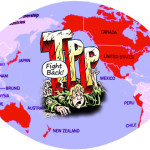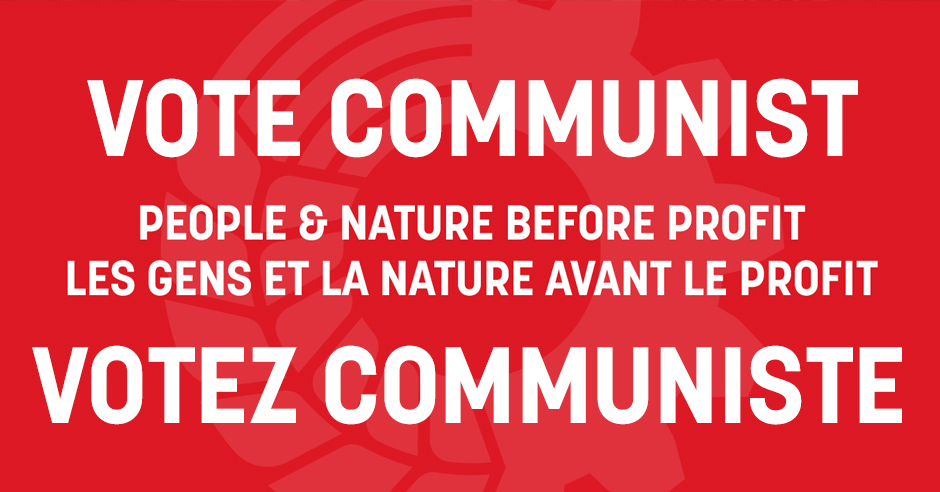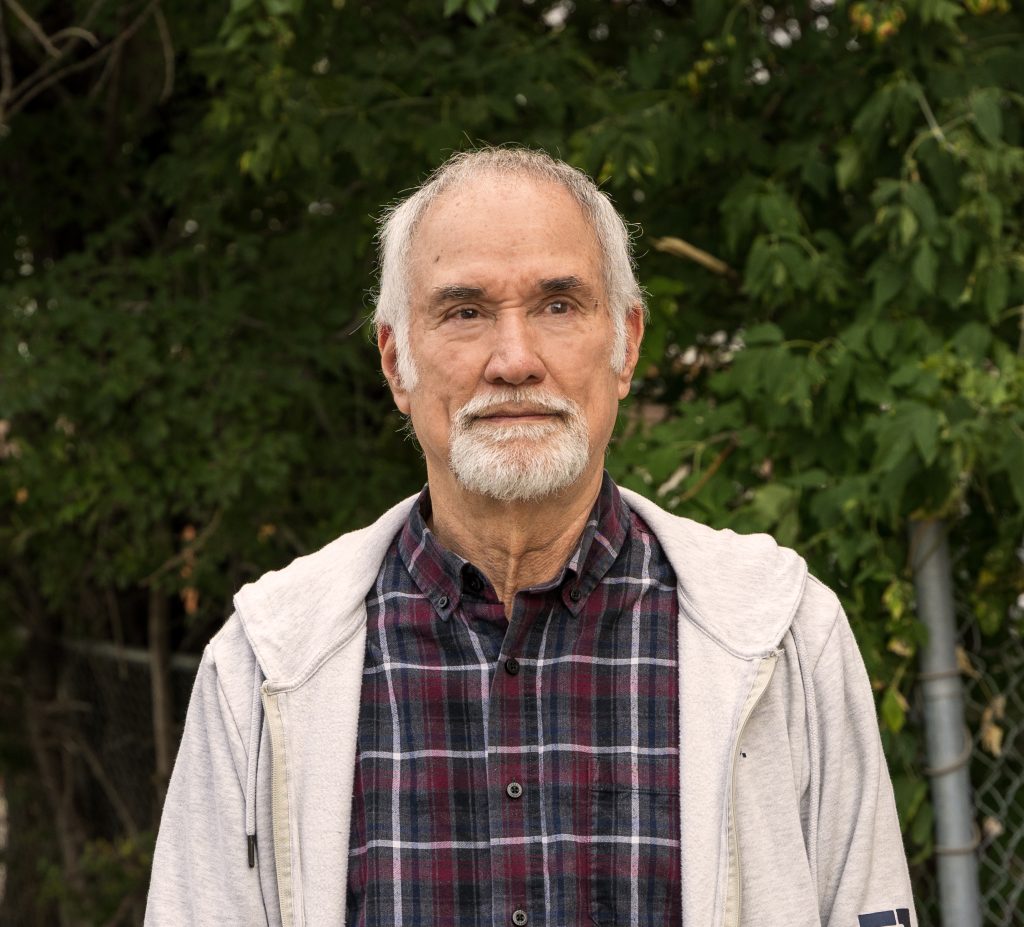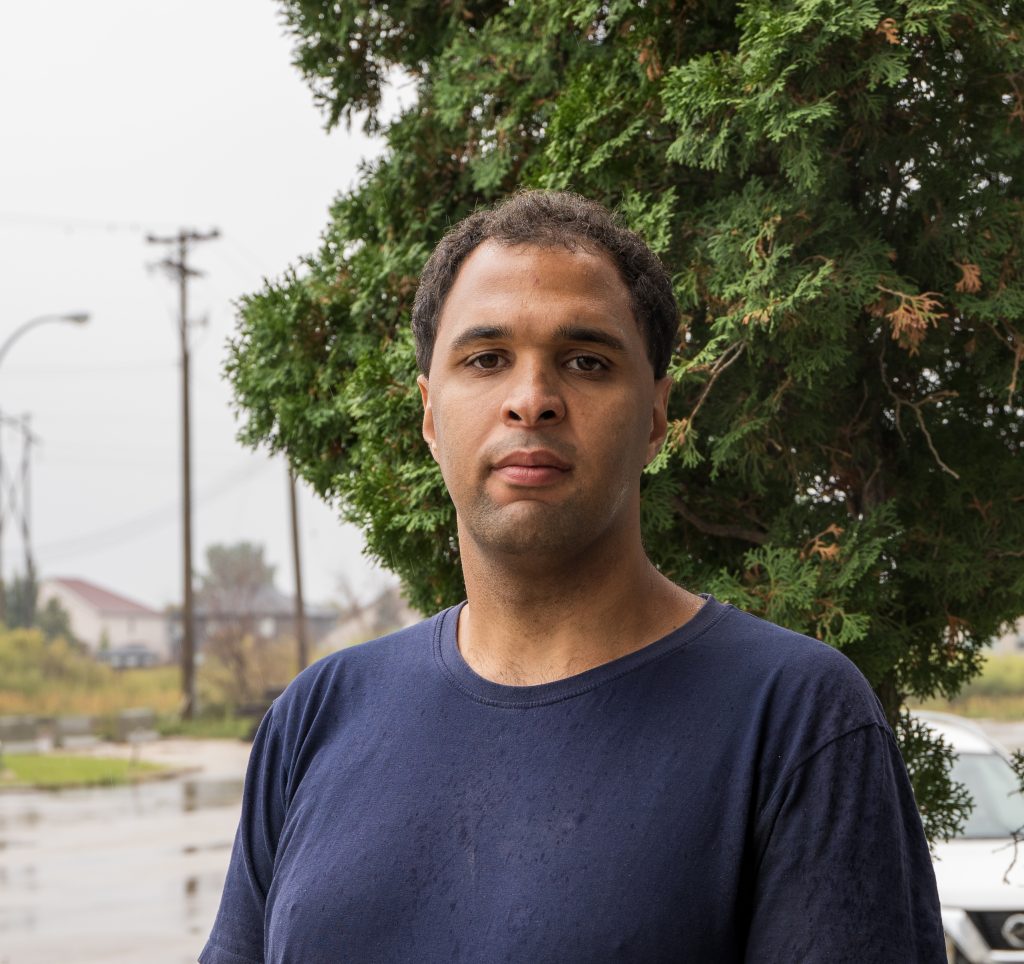The central fact of political life in Canada is that state power is in the hands of Canadian finance capital. In capitalist society, the owners of the large-scale means of production, trade and finance control the state machinery: the armed forces, police, judiciary, and civil service. The capitalist state is thus an instrument of class rule. A small minority – the exploiting class – rules in fact over the great majority of the people who create all the wealth and provide all the services.
The Canadian people in the past waged a revolutionary struggle for democracy,: for representative institutions, universal suffrage, and popular liberties. In 1837, popular anti-colonial uprisings led by the democratic forces of French and English Canada revolted against colonial officialdom and the reactionary and privileged strata (the Family Compact in Upper Canada and the Chateau Clique in Lower Canada). The revolutionary uprising of the Métis and Indigenous peoples followed in the West. But these struggles took place before and during the period of the birth of industrial capitalism in Canada; they opened the way to the development of industry and the political rule of the Canadian capitalist class.
The Canadian state bears the imprint of its colonial origin: the retention of a monarch of another country as the head of state, and still in possession of the ill-defined “royal prerogative.” The Senate is still appointed from the privileged class.
At Confederation, the British government confirmed the claim of the Canadian capitalists to legislative sovereignty within Canada, while they in return undertook to keep the Dominion within the Empire. The result was commitment to British foreign policy and wars, and acceptance of the role of Canada as a raw materials supplier.
With the growth of capitalist monopoly, Canadian bourgeois nationalism asserted itself. The Statute of Westminster (1931) declared the “equality of status” of members of the Commonwealth. But this was also the period of the rise of the United States to world dominance; and the Canadian bourgeoisie, ever more closely linked with U.S. monopoly interests, proceeded to make this country dependent on U.S. imperialism. Since the Second World War, this process has led to far-reaching measures of economic, political and military integration with the U.S.
By offering a “free choice” between the political parties representing capitalist interests, and by its control of the agencies that mold public opinion, the capitalist class has been able to maintain its class rule. This includes the state financing of election expenses for the biggest political parties, parties which are increasingly similar on the main questions of concern to the people. At the same time, the smaller, progressive and revolutionary parties are being squeezed onto the electoral margins, or off the electoral platform altogether. More and more, important policy and state affairs are removed from the parliamentary arena, and instead decided by Cabinet or its non-elected officials in the state apparatus, by appointed judges and courts, or in conformity with the terms of bilateral and multilateral agreements imposed on the Canadian people. A similar anti-democratic trend exists at the provincial and municipal levels of government. The already-restricted democratic decision-making afforded by bourgeois “parliamentary democracy” is eroding quickly. A growing alienation from bourgeois politics is developing among working people for all of these reasons.
As economic crisis deepens, finance capital increasingly wields the coercive arm of the state to thwart the legitimate struggles of the people, stripping away the mask of state neutrality. The state and its institutions do not stand above social conflict – the state is a partisan, active, and increasingly authoritarian force on the side of finance capital.
More and more the state intervenes directly to attack and undermine free collective bargaining, and the right to strike, picket, and organize. There is a steady increase in the use of the police and the courts, of strikebreaking and scab herding, against picket lines and demonstrations. Vital democratic reforms to protect and extend the rights of labour, women, 2S/LGBTiQ people, and immigrants, and to combat racism and discrimination, are systematically blocked and dismantled. Deregulation, privatization, and the dismantling of decades-old labour laws and benefits , are a central part of the assault.
Part of the attack on democracy is seen in the increasing monopolization of the mass media, and in the decreasing state support for a democratic Canadian culture. This is combined with a massive infusion, mainly from the U.S., of mass, corporate culture that is also often violent. The mainstream press and media act as the voice of finance capital and right-wing forces. The corporate media are becoming an ever-more sophisticated and powerful instrument to manipulate public opinion, by parroting pro-monopoly propaganda, filtering out conflicting news and analysis, and silencing expressions of anti-capitalist dissent. The development of new information technologies, such as the Internet, creates the conditions for an unprecedented flow of information. A free flow of information is a threat to state monopoly capitalism, however, and as a result, useful information is often hidden in a glut of commercial advertising. Finance capital is attempting to strengthen its domination and effective control of the Internet.
The spokespersons of the bourgeoisie praise ‘the rule of law’. They maintain that Canada is an exemplary democracy, in which all citizens are equal before the law, protected by the Charter of Rights and Liberties. Capitalist “equality” does not guarantee even minimal economic rights let alone a more equal division of society’s production.
However, they do not mention that this so-called “democratic” bourgeoisie rules the vast majority of the population through an economic dictatorship. The Canadian bourgeoisie claims with pride that the judicial branch of government is independent of the legislative and executive branches. Yet, the judiciary is appointed by the executive and reflects its class character.
Trade unionists are arrested and imprisoned for putting the collective rights of their members above the rights of the boss. Less and less tolerance is seen from the police at peaceful demonstrations. Exceptional measures are becoming less and less exceptional, and more and more repressive.
There is a class approach to crime and punishment – a two-tier justice system. Laws and penalties are very severe for criminals who commit petty offenses, but powerful offenders get off with light penalties, if any. Large companies and the rich who pollute the environment or violate worker health and safety regulations are treated as having committed minor offenses and are rarely jailed or deprived of their property.
As well, the justice system bears the imprint of its colonialist and racist construction: Indigenous prisoners are over-represented in the prison population, Black and Indigenous people are over-policed and harassed in communities across the country, and the notion of an equitable access to legal defense has become a fiction, given the grossly insufficient funding of legal aid programs.
Corruption, bribery, and organized crime are part of capitalist development. Many of the great wealthy families acquired their wealth through illegal activities in earlier generations; they and their descendants have later morphed into honourable ladies and gentlemen. Theft by the rich becomes legalized and exploitation valued.
The Canadian Security Intelligence Service and the Communications Security Establishment are a particularly dangerous part of the state apparatus. Working in tandem with the CIA and other imperialist security agencies, CSIS and CSE constitute an attack on the democratic and civil rights of Canadians. These agencies, which operate outside the law and beyond the reach of Parliament, exist to suppress political dissent, and have the potential to serve as a vehicle to transform Canada into a police state.
The Canadian Armed Forces are an instrument of imperialist aggression under U.S./NATO command. The Armed Forces also exist to intervene to suppress the democratic, class and national struggles of the Canadian people.
Racist and fascist organizations are permitted to operate with relative freedom by the state, and in fact receive support from the most reactionary elements within the ruling class. Visible links between these far-right organizations and prominent members of the Conservative Party exist through far-right media. Preying on the fear, insecurity, uncertain economic conditions, and a low level of class consciousness among certain sections of the Canadian people – especially the youth and the petty bourgeoisie, these groups promote prejudice, race hatred, and fascist ideology in order to divide and weaken the working class while creating favourable conditions for growth of the far-right.
In short, the repressive role of the Canadian state as an instrument of class rule is becoming steadily more exposed, as the most powerful corporate interests expand at the expense of the labour and democratic rights of the people. The already limited avenues for democratic expression and participation are being continuously and deeply eroded. The struggle to unite the labour and people’s forces in defence of democracy has thus become an urgent and central task.
Canada: A Multi-National Country
Canada includes many nations. The word ‘nation’ is used in different ways, but what is meant here is an historically-constituted community of people, formed on the basis of a common language, territory, economic life, and national consciousness manifested in a common culture. Nations come into existence and pass out of existence, by forcible and peaceful historical processes, or a combination of both. It is a dynamic process in which, the creation and development of each nation occurs in a specific and different way. As a result, the struggle for a democratic solution to the national question requires an understanding and respect for these objective differences.
Among the smaller nations in Canada are Indigenous peoples who are exercising their right to sovereignty with the demand for autonomy and self-government. Among these are the Northern Cree in Quebec, and the newly created territory of Nunavut, the Nisga’a on the west coast, and others. The Acadians in the Maritimes also constitute a smaller nation in Canada. The two largest nations are English-speaking Canada and Quebec.
The crisis of confederation lies first and foremost in the refusal of the ruling class, the Canadian monopoly bourgeoisie, to recognize the right of each nation to self-determination; that is, the right to choose the form of sovereignty that the majority of the people of each nation desires, including the right to separate and form an independent state.
Sovereignty may be expressed in a free national choice of one of three following forms: a separate state, a confederation of equal nations or states, or autonomy.
For many years, the Communist Party has put forward the proposal for a new constitution based on the equal and voluntary partnership of all nations in Canada: Quebec, English-speaking Canada, the Indigenous Peoples, and the Acadians. Such a new constitutional arrangement must guarantee the protection of Indigenous inherent rights, including the right to consent over any change in their constitutional status, and on all matters pertaining to their national development.
The Communist Party proposes a confederal republic with a government consisting of two chambers: one, such as the House of Commons today, would be based on representation by population, elected through a new system of proportional representation. In the view of our Party the other chamber would be a House of Nationalities, which would replace the present Senate. Our proposal – subject to amendment during full advance consultations by the nations within the Canadian state – is that such a House of Nationalities would be composed of a guaranteed and significant number of elected representatives from Quebec, English-speaking Canada, Indigenous peoples (First Nations, Inuit and Métis) and the Acadians. Each chamber would have the right to initiate legislation, but both would have to adopt legislation for it to become law. Furthermore, the Indigenous peoples would have the right to veto on all matters pertaining to their national development.
This structure will protect both fundamental democratic principles: equality of the rights of nations whatever their size, and majority rule. Structural changes reflecting this confederal arrangement would need to be made throughout the legal system and state apparatus.
A genuinely democratic constitution would correct the historic injustices suffered by the Indigenous peoples by recognizing their full economic, social, national and political equality, and the just settlement of their land claims based on treaty rights, Indigenous claims and scrip. This includes the rights and demands of Indigenous women. The right of nations to self-determination must be entrenched in the Canadian constitution.
This fight for constitutional change is crucial to the overall struggle for democracy, social advance and for socialism. Uniting the working class across the country will not be possible without combating national oppression and fighting to achieve a new, equal and voluntary partnership of Canada’s nations.
The sharpest expression of the constitutional crisis relates to Quebec’s national status and the refusal of the Canadian state to recognize Quebec’s right to national self-determination, up to and including secession. This non-recognition of Quebec’s rights is itself an expression of the historic national oppression of Quebec – its political, economic and social oppression – since the British conquest of New France in 1763. This national oppression continues, in turn, to arouse national indignation among the Quebec people, and to spawn a nationalist and separatist movement led by a section of the Quebec bourgeoisie and petite bourgeoisie.
The fight to defend Quebec’s national rights and sovereignty is a pivotal social and democratic struggle. However, in the current situation the independence of Quebec as advocated by the bourgeois and petty- bourgeois nationalist parties would not solve the crisis in the best interests of workers. Quebec has reached the advanced stage of monopoly capitalism; its economic relations with English-speaking Canada are no longer those of a colonial character. The separatist solution would lead to significant additional economic hardship for both Quebec workers and the rest of the country, weakening their political unity against the common enemy – finance capital, both domestic and international – and weakening the common struggle for fundamental change.
Recent changes to Canada’s constitution have perpetuated the structural flaws and built-in inequalities of the original British North America Act (BNA Act) of 1867. The adoption of a new Canadian constitution and Charter of Rights and Freedoms in 1982, while formally a step forward from a colonial aAct of another country, nevertheless failed to address the underlying source of the crisis of Confederation. The current constitution perpetuates the injustices and inequities of the old BNA Act. “Provincial rights” were substituted for genuine national rights, thus accentuating the trend to decentralization, while doing nothing to uphold Canadian independence or to recognize the national rights of Quebec, the Indigenous peoples, and other nations in Canada.
The Acadians, who today live mostly in the Maritimes, are also a nation. Originally 16th century settlers from France, the Acadians were driven out of Nova Scotia by the British colonialists who seized these lands after the defeat of the Kingdom of France in 1755. While significant numbers of the Acadian people remain geographically scattered in the Maritimes and Quebec, the Acadians now constitute one third of the population of New Brunswick and are the majority of the population on a large territory in the northeast of the province. They constitute a numerically important, stable community that retains its unique language, culture, history, and collective national consciousness.
As a nation, the Acadians have the right to self-determination. They may choose national autonomy and self-government within Canada, while maintaining their right to secession in the future if they so decide. Autonomy and self-government would include state support to help protect and maintain Acadian national identity within Canada.
The Métis nation emerged in the period of merchant capitalism in the 18th century based on the fur trade and was mainly situated along the rivers flowing into Hudson Bay. The assertion of national rights by the Métis in the rebellions of 1869-70 and 1885 was brutally crushed by the dominant English-speaking ruling class, who were backed by the expansionary industrial capitalism of Ontario and Quebec. Nevertheless, the resistance of the Métis led to the establishment of the province of Manitoba and helped keep alive the spirit of resistance against all national oppression in Canada up to the present. About half a million Métis live across the country, mainly concentrated in the prairie provinces.
The Indigenous peoples had been living on Turtle Island for thousands of years before the first European colonialists arrived. Prior to European settlement, the social, cultural and economic organization of Indigenous communities was progressing – depending on the development of the productive capacities of each community – from smaller, dispersed and relatively isolated tribes into more complex, organized and technologically advanced societies with extensive trade partnerships.
The Canadian government enforced its genocidal policies through the establishment of residential schools, forcibly removing Indigenous children from their communities and families. Many children did not survive the abuse, starvation and deprivation that intentionally occurred. Many survivors lost their language, culture and connection to their lands and communities. The effects are ever present today, as the last residential school only closed two decades ago. Moreover, this genocidal practice still continues through the racist foster-care system. Indigenous children are taken from their parents and primarily placed with white families, disconnecting them from their communities and culture. To justify this, the sState uses abuse, addiction and neglect as reasons for the removal of Indigenous children from their families, while conveniently ignoring and refusing accountability for the history and current effects of colonialism.
Capitalist industrialization in Canada developed at the expense of its original inhabitants. European colonization and subjugation violently interrupted the processes of development and nation-building of Indigenous societies. Their resistance to colonial encroachment was brutally crushed. A policy of genocide was adopted by the state, such as the extermination of the Beothuk in Newfoundland, the scalp bounty on the Mi’kmaq in the Maritimes, the enslavement of some and the deliberate starvation and infection of others with deadly diseases. This was followed by forced relocation onto remote and impoverished reserves, the take-over of Indigenous lands through deliberate government policies to encourage massive waves of European settler immigrants, and the abduction of children to residential schools where many were sexually assaulted and brutalized for speaking their own language. The organized suppression of Indigenous cultures, included the banning of the communal Potlatch on the west coast, drumming of the Anishinaabe Peoples, and the Sun Dance on the prairies. Such is the record of Canadian history which continues to the present day in the form of assimilationist proposals for permanent elimination of inherent national rights, opening up reserve lands for private sale, and gradual absorption of Indigenous peoples into the broader population, all in contravention of internationally recognized rights such as the UN Declaration on the Rights of Indigenous Peoples.
In this very real sense, the policies of colonialism, driven by and serving the interests of ruling circles in the European centres and working to benefit Canada’s own bourgeoisie, are at the heart of the foundation of the Canadian state and remain in place in the 21st century. The original treaties signed by Indigenous peoples have been constantly violated, and the unceded traditional territories of those who never surrendered or signed treaties, have been turned into crown land for the profits of the big resource monopolies. The Indigenous peoples, and working people who came to Canada in search of a better life, only to be victimized by the big banking, railroad and agribusiness monopolies, have a common enemy – the capitalist state and the big corporations, which aim to maximize profits through resource extraction and exploitation of workers. The Communist Party of Canada stands for the liberation of Indigenous peoples and other oppressed nations in this country, and for the unity of the working class of all nations and peoples, to achieve genuine democracy, equality, environmental survival, and socialism.
Presently, Indigenous peoples have the highest rates of suicide, infant mortality, impoverishment, and incarceration in Canada, and a life expectancy 10-15 years lower than the average. Indigenous women and girls have been the victims of forced sterilization programs, and of thousands of murders and disappearances. Denied full social equality and human rights, and deprived of control over their inherent traditional territories, Indigenous peoples continue to resist the Canadian capitalist state’s policies of assimilation, dispossession, and genocide.
Even today, the state, acting on behalf of finance capital, is actively attempting to undermine and nullify the status and national rights of Indigenous peoples. This has produced acute poverty and oppression on the reserves and other areas inhabited by the Indigenous peoples. Denied an adequate land base, acceptable living standards, the ability to live in their traditional manner, or the opportunity to mount successful cooperative commercial operations where they live, Indigenous people for many years have migrated to urban areas where they face high unemployment, discrimination and the further destruction of their cultural identity.
The Communist Party struggles for immediate redress of historic injustices to Indigenous peoples. This must include preferential treatment in the provision of housing, health care, education, and job creation, as a priority. Furthermore, immediate achievement of national rights and just and early settlement of land claims will help to improve the prospect for the fuller development of Indigenous peoples as nations, a process that the Communist Party fully supports.
The Communist Party also supports the struggle of those nations, such as the Cree in Northern Quebec, who are seeking full recognition of their right of self-determination.
Today, there is a renewed spirit of insurgency among the Indigenous peoples. There is increasing unity between various Indigenous peoples in their individual and particular struggles against the capitalist state. The Communist Party supports the increasing unity of the Indigenous peoples in their just struggle.
Within each nation, there are national minorities whose national homeland is within the borders of another nation within Canada. This is the case for French speaking minorities living in English-speaking Canada, the English-speaking minority living in Quebec, and members of Indigenous nations and Acadians living outside their national homelands. These national minorities all have the right to educate their children and to receive state supported services in their own languages, wherever numbers warrant.
With the exception of the English-speaking minority in Quebec, all other national minorities living in the country see their rights violated to varying degrees.
There are approximately 1.5 million people in Canada defined as Indigenous (Inuit, Métis and First Nations), of whom just over half live outside First Nations reserves. Their national rights are totally denied, and they are victims of centuries of genocidal policies which continue up to the present.
There are more than one million Francophones living outside Quebec and Acadia who have continued to resist assimilation since before Confederation. While formally they have the right to receive state services and education in French where numbers warrant, in fact access to French language education and services is routinely denied, forcing Francophone communities to struggle to maintain their national identity, language and culture without any state support.
With the exception of the Indigenous peoples, Canada is a country of immigrants, old and new. Comprised of hundreds of diverse ethnic groups, who will eventually merge with French-speaking Quebec or English-speaking Canada, these ethnic groups have the right to preserve their language and heritage and to pass it on to succeeding generations through state-supported after-school language programs, and through state-supported cultural and community activities. The Communist Party recognizes that this two-sided process of merging and preserving language, culture and heritage, is of long duration, influencing and enriching the different national cultures existing in Canada.
The policy of multi-culturalism advanced by the Canadian state over the past half-century contends that the Canadian identity is formed solely by the contribution of a mosaic of different ethnic groups, equal among themselves, who have arrived as immigrants and who, for the most part, have quickly integrated and continue to integrate mainly into the dominant English-speaking nation of Canada.
This policy was created ostensibly to differentiate Canada’s multi-culturalism from the US melting pot which forces immigrants to abandon their mother-tongue and their culture when they immigrate to the US.
In fact, Canada’s multi-culturalism policy was created to deny the existence of nations within Canada, to deny their national rights, to maintain the dominance of English-speaking Canada over all others, and to maintain the power of the English-speaking capitalist class.
But the multi-national character of Canada cannot be denied indefinitely. The democratic national sentiments of the peoples will make themselves heard in their demands for recognition and redress. The Communist Party advocates a new, equal, and voluntary partnership of Canada’s nations in a new Constitution, based on recognition of the right of nations to self-determination up to and including the right to secession.
Immigrant workers from many lands have played a vital part in building Canada’s industries, railways, and agriculture. New immigrants form a considerable portion of Canada’s labour force. Immigrant workers continue to suffer from acute discrimination, arising in the main from capitalist exploitation and attitudes of national chauvinism. From its foundation the Communist Party has struggled to end discrimination against immigrant workers, working to expose how capitalism generates racism and national chauvinism, profits from low wage areas, and divides the working class to hold back the overall struggle.
Most immigration to Canada has been structured to support colonialist expansion and capitalist exploitation. In the colonial period, the English and French ruling classes not only directed white settlement that oppressed and displaced Indigenous peoples; they also exploited most immigrants as a source of cheap labour and primary production. Later patterns of immigration under the Canadian state continued racist, chauvinist, and anti-labour policies in expanding settlement and building capitalist industry. The notorious treatment of Chinese labour in the building of the CPR and of immigrant labour in the textile industry and agriculture are characteristic of how Canadian capitalists have tended to segregate and super-exploit groups of immigrant workers.
Canadian state immigration policy is also class-oriented. Temporary migrant labour programs are particularly exploitative, providing a steady stream of vulnerable workers with low wages, no benefits or labour protection, and no path to citizenship. These programs lay the conditions for enslavement and extreme exploitation, as workers are tied exclusively to employers.
There is a massive uprooting of millions of people as a result of the growing impoverishment of less developed countries, destabilizing imperialist-inspired wars and environmental disasters, and the growth of criminal trafficking in immigrants. To reduce these international movements of dispossessed people and political refugees requires progressive policies for world economic development and peace – not more repression of immigrants or elimination of their democratic rights. The communists demand priority in immigration to refugees, elimination of privileged entry to capitalist investors, phasing out of guest-worker provisions except for genuine educational, scientific or cultural exchange, and the full protection of immigrants through an immigrant bill of rights. Such a bill of rights should prioritize family reunification for existing immigrants and expand sponsorship rights to include siblings; take strong action against human trafficking, enslavement and exploitation; and streamline the immigration process to reduce class bias and language and cultural barriers.
The Charter of Rights and Freedoms is also seriously flawed. While formally recognizing certain fundamental rights – freedom of association, assembly, religion, freedom of the press; the rights to liberty and security, and equality without discrimination based on race, gender, religion or national origin, — it also permits the federal and provincial legislatures to simply use the “notwithstanding” clause to deny these basic human rights in practice. A Bill of Rights for Labour was denied the working people of Canada, leaving the trade union movement with no constitutionally guaranteed rights.
Municipalities continue to be denied status in the repatriated Constitution. Though the majority of Canadians live within urban municipalities, these bodies can be created and dissolved at will by provincial governments.
A new constitution would prohibit the violation of the civil liberties of immigrants. It would outlaw racism and discrimination. It would assure the democratic, cultural and language rights of the non-French, non-English ethnic groups in Canada. A new constitution must embody a Bill of Rights, and a Bill of Rights for Labour, to provide guarantees of trade union and democratic rights which apply to the people of all nations within the Canadian state. These guarantees must ensure economic, social, cultural and linguistic equality, the right of assembly, the right to organize and strike, the habeas corpus right not to be arbitrarily deprived of one’s liberty, the right to a job, to freedom of movement, to health, to education, and to housing.
A genuinely democratic constitution must be accompanied by basic structural reform. To overcome regional inequality, these reforms must be based on the necessity for all-sided economic development in all parts of Canada, combined with nationalization of natural resources, above all energy. Through publicly owned corporations, benefits from the development of natural and energy resources must serve the people of Canada as a whole, as well as industrial and social development in the provinces, where the resources are found.
The erosion of local democracy has its roots in the absence of constitutional status, jurisdiction and rights for municipalities. A democratic constitution would recognize municipalities, guarantee local municipal autonomy, and create the most favourable conditions for local democratic control.
A new constitution would unify social legislation to provide equal opportunity and high standards in all of Canada while respecting the sovereignty of Quebec, and the right to self-government of the Indigenous peoples. It would ensure that the corporations will not be able to escape responsibility for the contribution they owe to public education, living standards, and the health and social welfare of all Canadians.
Most important, a new constitution will help to remove the causes of the long-standing disunity, friction and resentment between English-speaking Canada and Quebec, and the Indigenous peoples’ inequality and national oppression.
The Communist Party sees the struggle for a democratic solution of the constitutional crisis as an integral part of the struggle against capitalist rule. The Communist Party stands for the unity of the working class in the struggle against this common enemy: domestic and international finance capital. Victory in the struggle for democracy and against political reaction, for Canadian independence, and for socialism requires a powerful alliance of the working class of English-speaking Canada and Quebec, together with the progressive forces in Indigenous communities and among national and ethnic minorities.
The historic direction of these struggles is toward the achievement of a higher form of democracy through the establishment of a socialist state and the rule of the vast majority of the Canadian people.
Next Chapter: The working class and people’s struggle
Previous Chapter: Canada in a changing world









